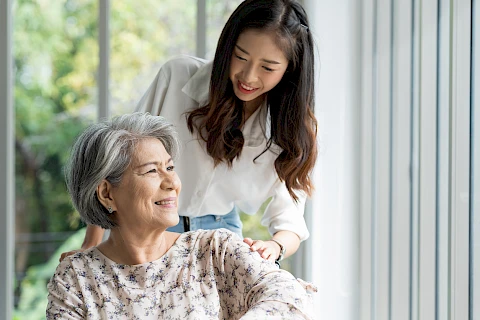
Parkinson's disease brings with it a series of challenges and changes, not just for those diagnosed but also for their loved ones who often step into the role of caregivers. For caregivers, understanding Parkinson’s basics and its progression can be critical in providing effective care. With practical knowledge, you can better anticipate and address the unique needs of senior loved ones with the condition and navigate caregiving with confidence and compassion.
Introduction to Parkinson's Disease
Parkinson's disease is a neurodegenerative disorder that primarily affects dopamine-producing neurons in the brain. Common symptoms may include tremors, rigidity, bradykinesia (slow movement), and postural instability.
However, Parkinson's disease can also manifest in a variety of non-motor symptoms like depression, cognitive changes, and sleep disorders. Its progression can also vary among individuals. Some may live with only minor symptoms for several years, while others may experience a more rapid progression of the disease. Awareness of these possible symptoms helps caregivers better prepare and adapt to changes.
Practical Tips for Managing Daily Tasks
Dealing with daily tasks for a senior with Parkinson’s will require a few adjustments and a lot of patience. Consider simple home modifications like removing rugs that can cause tripping or installing handrails to address mobility concerns. Managing medication schedules can be complicated due to the need for precise timing. Using pill organizers and setting reminders can be helpful.
For personal care tasks, encouraging independence as much as possible can maintain your loved one's dignity and self-worth. Establishing routines and breaking tasks into manageable steps can help mitigate the frustration and anxiety often associated with challenges related to Parkinson's.
Seniors with Parkinson's may experience feelings of inadequacy or isolation while navigating the progression of their condition. Foster an environment of understanding and belonging by providing reassurance and actively listening to their concerns.
The Role of a Caregiver in Parkinson's Disease
As a caregiver for a senior loved one with Parkinson’s, your role goes beyond assisting with daily tasks. You are a vital emotional and mental support for your loved one with Parkinson's. It can be challenging to see a loved one struggle. However, your support can significantly enhance their quality of life. Just remember that in this journey, you must also prioritize your emotional well-being. Self-care is essential to prevent caregiver burnout and to continue providing the best care possible.
Supporting Caregivers Navigate the Challenges of Parkinson's
Senior Helpers of South Minneapolis offers specialized Parkinson's Care services, providing compassionate support tailored to the unique needs of individuals with Parkinson's disease. Our trained caregivers can provide personalized care plans that adapt to the progression of the disease. We also offer vital respite for family caregivers, allowing them much-needed breaks to rest and recharge. Our team of experts comes with the assurance of comprehensive training in providing compassionate, effective care for individuals with Parkinson's disease.
Do You Need Help Managing Parkinson's?
Understanding Parkinson's disease and knowing how to navigate its progression as a caregiver can be a daunting task. However, with proper support, resources, and information, you can empower yourself to provide compassionate care while prioritizing your well-being.
If you’re in Minneapolis, Saint Paul, Minnetonka, and Hennepin County, MN, and need support caring for a loved one with Parkinson’s, you’ve come to the right place. Senior Helpers of South Minneapolis provides professional in-home senior care solutions, including Parkinson’s Care. Contact us to learn more about our services!